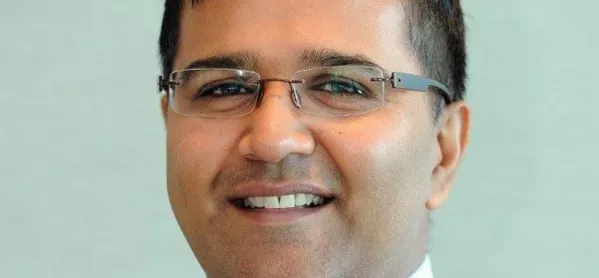Why teacher-bashing must become a thing of the past

Over the past year teachers have been recipients of uncharacteristic doses of praise from senior politicians. Education secretary Nicky Morgan has been far more emollient than her more combative predecessor. And, prior to the election, Labour’s education spokesman Tristram Hunt went out of his way to signal that he wanted to end the teacher-bashing that has become a staple of political life.
Cynics have attributed this new-found affection from all political parties to the need to win favour with Britain’s 438,000 teachers ahead of the general election. But, whatever the motivation, it’s a welcome improvement. Over the past few decades, politicians have competed stroke-for-stroke on who could sound the toughest on teachers. There’s been an obsessive focus from politicians and commentators on the small minority of teachers that aren’t doing a doing a good job. It has sometimes seemed that the profession was being blamed for a multitude of societal problems, from lack of good manners to economic decline.
It’s therefore hardly surprising that teachers don’t feel respected. Although surveys consistently show that teachers remain one of the most trusted professions - just behind doctors - trust doesn’t translate into respect. The Global Teacher Status Index, published by the Varkey Foundation in 2013, compared the public status of teachers in 21 countries. The UK was placed tenth in the list, with only about one in five adults believing teachers were shown respect.
Compare that to China where teachers are revered because of the strong cultural emphasis on the importance of the profession. Three-quarters of Chinese people would encourage their children to become teachers (a question that gets to the heart of one’s feelings towards a profession) compared with just a quarter of British people.
When asked to compare teachers to an equivalent-status profession, Chinese people were most likely to pick doctors. In the UK, meanwhile, teachers were most likely to be compared to nurses or social workers.
All this cannot be blamed on politicians alone. Consider how the image of teaching is reflected in fiction, too. While TV medical dramas such as ER and Grey’s Anatomy portray doctors as life-saving heroes, series such as Teachers, Bad Education and Waterloo Road depict the teaching profession as hapless, chaotic and under-committed. It is only programmes such as Educating Yorkshire and Educating the East End - documentaries depicting real teaching in real classrooms - that have showcased the magical chemistry of teachers at their best.
All the international evidence shows that improving the quality of teaching makes the biggest difference to educational outcomes - far more than, for instance, tinkering with the curriculum or increasing the amount of pupil testing. US academics Raj Chetty and John Friedman have shown that substituting a teacher at the bottom of the profession with one of average quality raises the collective lifetime earnings of each class they teach by an incredible $1.4 million. It seems obvious, but the evidence shows that teachers matter.
Andreas Schleicher, the educationalist behind the OECD’s Pisa rankings, has identified the trinity of “status, pay and professional autonomy” as the essential ingredients to attracting the best teachers. The best graduates, with the pick of job opportunities, are unlikely to be attracted to a profession that is held in low esteem.
That’s why, last year, the Varkey Foundation launched the first Global Teacher Prize. Our founder, Sunny Varkey, based the prize on a simple premise: if our culture lavishes such praise and riches on celebrities, why should not an outstanding teacher be equally celebrated?
The process garnered worldwide acclaim, from the finalists meeting the Pope and prime minister David Cameron tweeting his support to extensive media coverage. Nancie Atwell, a teacher from Maine, US, won the prize. She had changed the way that English was taught by encouraging her students to follow their own interests in choosing the subjects they wrote about and the books they read.
But the prize was always about more than just one teacher. It’s about unearthing thousands of inspirational stories of teachers the world over. This year’s award resulted in more than 5,000 nominations from 127 countries. However, only 23 UK teachers applied for the prize, a far lower number than the US (174), Nigeria (98) and India (193). Perhaps that’s not surprising given our research on teacher respect in this country.
But I know that the UK has just as many talented and inspirational teachers: like this year’s finalist Richard Spencer, a science teacher from Middlesbrough, who sings and dances in lessons to help his pupils learn complicated scientific terms.
The nominations for next year’s prize are now open. I hope that more UK teachers feel encouraged to put themselves forward for the award. They deserve the recognition, and my hope is that the prize will help to change the climate so that celebration, rather than denigration, becomes the norm in our attitude towards teachers.
Vikas Pota is chief executive of the Varkey Foundation
UK teachers can apply or be nominated for the Global Teacher Prize 2016 before 10 October by going to www.globalteacherprize.org
Keep reading for just £1 per month
You've reached your limit of free articles this month. Subscribe for £1 per month for three months and get:
- Unlimited access to all Tes magazine content
- Exclusive subscriber-only stories
- Award-winning email newsletters



